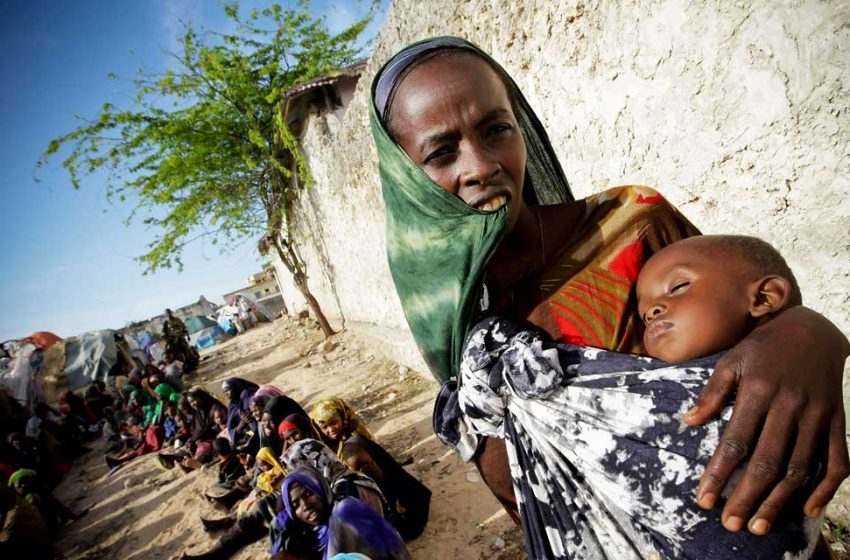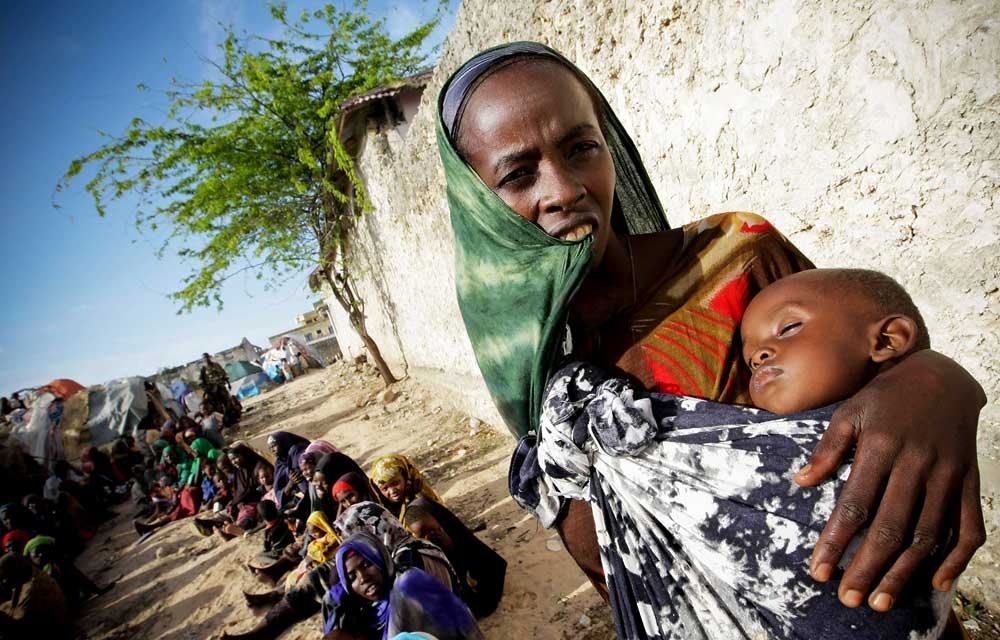INTERVIEW-Four famines mean 20 million may starve in the next six months

 (Reuters) More than 20 million people – greater than the population of Romania or Florida – risk dying from starvation within six months in four separate famines, U.N. World Food Programme chief economist Arif Husain says.
(Reuters) More than 20 million people – greater than the population of Romania or Florida – risk dying from starvation within six months in four separate famines, U.N. World Food Programme chief economist Arif Husain says.
Wars in Yemen, northeastern Nigeria and South Sudan have devastated households and driven up prices, while a drought in east Africa has ruined the agricultural economy.
“In my not quite 15 years with the World Food Programme, this is the first time that we are literally talking about famine in four different parts of the world at the same time,” he told Reuters in an interview.
“It’s almost overwhelming to comprehend that in the 21st century people are still experiencing famines of such magnitude. We’re talking about 20 million people, and all this within the next six months, or now. Yemen is now, Nigeria is now, South Sudan is now,” he said.
“Somalia, when I look at the indicators in terms of extremely high food prices, falling livestock prices and agricultural wages, it’s going to come pretty fast.”
The global humanitarian system is already struggling with a historic surge in migration, huge operations in Syria, Iraq and Afghanistan, and serious situations in Ukraine, Burundi, Libya and Zimbabwe.
“Then you have places like DRC (Democratic Republic of Congo), CAR (Central African Republic), Burundi, Mali, Niger, where people are chronically food insecure but … there’s just not enough resources to go around.”
Humanitarian aid is at record high levels but demand is growing even faster, creating a huge gap. “In northeast Nigeria we’re feeding more than 1 million people and just a few months ago we didn’t even have an office there,” Husain said.
There is a glimmer of hope that Somalia’s drought will not be as severe as feared, but in the capital Mogadishu food prices have already risen by a quarter since January and forecasts for the rainy season from March to May are not optimistic.
TOO LATE
In 2011, Somalia suffered a famine that killed 260,000 people. The famine was declared in July, but most people had already died by May.
“When we declare famine, it means many lives have already been lost,” Husain said. “If we wait to find that out for sure, people are already dead.”
Moreover, the 2011 famine followed a good agricultural season. This year’s drought follows two bad seasons that have already sapped people’s resources.
In Yemen and South Sudan, economic collapse means people simply cannot afford the food that is available. Prices in South Sudan have risen two to four times in a year, and traders from Uganda and Kenya consider the local currency valueless.
Yemenis, whose family wealth may be stored in gold or silver or weapons, are being forced to sell off those assets.
“I was in Yemen just a couple of weeks ago. There is food in the markets. But people have not been paid, especially the urban population, which is about a third of the total population,” Husain said.
“Once they’ve lost their economic assets, it’s almost impossible for them to recover, and that just perpetuates long-term poverty.”
Yemen is officially still classed as an “emergency”, but famine could be declared within about three months, Husain said.
In Nigeria’s Borno state, where millions of people have fled Boko Haram militants, there is simply no commerce, no markets and no movement, leaving people dependent on emergency aid.
“They survive outside in camps, 50 degree Centigrade temperatures, living in huts with metal sheets on top, with one water point, with communal kitchens, with one meal per day,” Husain said.
